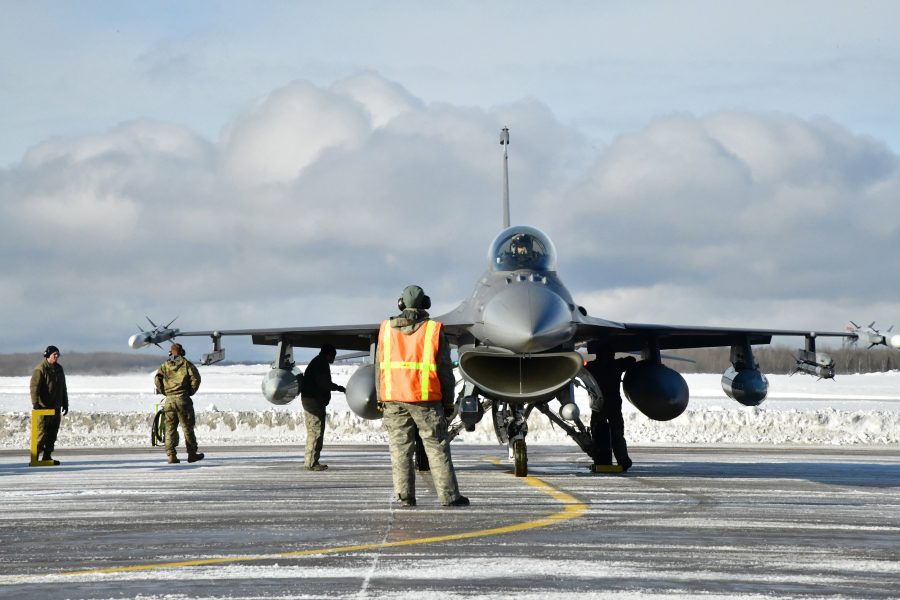U.S. Northern Command is requiring its “no fail” crews to live in isolation, so the command can focus on protecting them and the nation amid the new coronavirus outbreak, NORTHCOM boss USAF Gen. Terrence O’Shaughnessy said.
The command wants to drive “risk down to zero” for service members, including fighter pilots pulling alert for homeland defense missions and personnel operating ballistic missile defense radars, O’Shaughnessy told reporters during an April 21 teleconference.
“Some areas where we have very little redundancy, we don’t have multiple different options to perform a mission, then we are literally driving that so there is no chance of a COVID-19 impact to them,” O’Shaughnessy said.
At missile defense radar sites at Vandenberg Air Force Base, Calif., and Fort Greely, Alaska, personnel are living in government facilities away from family or any other personnel. Their food is delivered to them, and they only leave to “perform their mission without any interactions with the outside world,” he said.
Additionally, at fighter bases throughout the country, there have been “modifications” to alert facilities aimed at ensuring “they remain free of COVID-19,” O’Shaughnessy said, without adding specifics. Crews extensively clean the aircraft themselves to ensure they are free of the virus before alert pilots use them, and many commands have adopted a team approach to limit the number of people who come in contact with each other.
NORTHCOM also is enacting chemical, biological, radiological, and nuclear threat prevention measures to protect against virus.
“To some that might be overkill, but we understand that this is a mission set that we cannot fail on, so we’re taking no chances,” O’Shaughnessy said.
For the homeland defense mission, USAF fighters have repeatedly had to launch to intercept Russian aircraft approaching U.S. and Canadian territory near Alaska. While the pace of these missions has not necessarily increased, they have remained steady as the viral outbreak has impacted the globe. The U.S. must “make clear to them there are no vulnerabilities, we are postured to maintain that ability to respond at a moment’s notice with no degradation,” O’Shaughnessy said.
